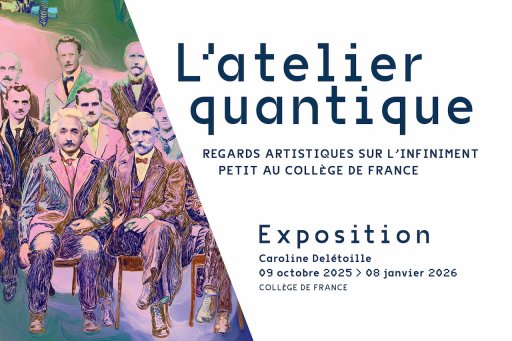
October 23 and 24, 2008
Under the patronage of Valérie Pécresse, Minister of Higher Education and Research
Placed under the scientific supervision of the Ecole nationale des Chartes
collège de France
cNRS (Institut d'histoire du temps présent (IHTP))
institut national de l'audiovisuel (INA)
Conceived and organized by Agnès Callu(Ecole des Chartes - CNRS)
This symposium, based on the narratives of a given population - mainly historians - aims to reflect on the legacies of May 68 for research tools, the circulation of knowledge, historical renewal and the rebuilding of knowledge transmission structures. By analyzing the content of these narratives, i.e. biographies fabricated a posteriori, recorded and, in some cases, captured on film, we hope to decipher the retrospective discourses of "intellectuals" on the impact of an event whose caesura is reputed to have been decisive. It looks in depth at the phenomena of socialization, on an individual and collective scale, at the social imaginaries clinging to generational figures or groups, at the confluences between historian interpretations and politicized reading grids, at the changes taking place in universities and higher education establishments, and at the codes that defined or redefined the apprehension and appropriation of the social sciences in the 1970s. download the program
This colloquium, based on the spoken experiences of a particular group: aims to explore the legacy of May 68, on research tools, historical renewing, and knowledge transmitting schemes. By analyzing the content of these testimonies, either recorded biographies or, for some, filmed, we hope to understand the retrospective discourses made by "Intellectuals" about this series of events and their impact on reputedly decisive breaks. We will explore in depth the phenomenons of socialization, on both individual and collective levels, how the social imaginaries cling to certain figures or generational groups, the convergences between historian and political interpretations, the changes instilled in the universities and higher education, the social codes that define perception and appropriation of social sciences in the seventies.
Das Kolloquium, das sich vornehmlich auf Erfahrungsberichte von Historikern stützt, möchte über die Auswirkungen des Mai 68 auf die Forschungsmethoden, die Zirkulation von Erkenntnissen, die historischen Erneuerungen und die Umarbeitung von Wissensvermittlung nachdenken. Durch die Analyse des Inhalts der Erzählungen, deshalb der Biographien, die im Nachhinein geschaffen, aufgezeichnet und - für einige - in Bildern eingefangen wurden, hofft das Kolloquium den retrospektiven Diskurs der "Intellektuellen" über dieses Ereignis mit bekanntlich einschneidender Wirkung zu entschlüsseln. Es befragt die Phänomene der Sozialisation, sowohl auf individueller als auch auf kollektiver Ebene, die sozialen Vorstellungen, die an bestimmte generationsspezifische Figuren oder Gruppen gebunden sind, das Zusammenfließen von historischen Interpretationen und politischen Lektürerastern, die Veränderungen die an den Universitäten und weiterführenden Bildungseinrichtungen durchgeführt wurden, und schließlich die Codes, welche die Aneignung der Sozialwissenschaften der 70er Jahre definieren.

 Scientific Advisory Board
Scientific Advisory Board 






